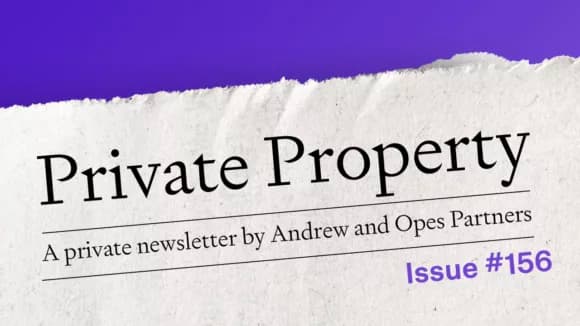
Property Investment
Property Investment
2 min read

Author: Andrew Nicol
Managing Director, 20+ Years' Experience Investing In Property, Author & Host
This week, I was working with an investor, creating a plan for them to go from 0 to 3 investment properties.
That’s when they asked: "Aren’t new houses like new cars. Won’t they go down in value as soon as you buy them?"
After all, you drive a brand-new car out of the showroom. And it’s no longer new.
So it’s not worth as much.
Surely properties are the same?
The new house = new car analogy sounds smart, but it’s wrong. Here’s the data to prove it.
Last year, I spent five figures (yes, really) buying this data from CoreLogic.
It puts every property in Auckland City into 2 groups:
It then tracks the average value of these 2 groups.
So what happens after you buy a New Build? Does it go down in value?
Nope. They went up in value.
The New Builds didn’t go down in value until around 2019. That was when all Auckland property prices took a dip.
Compare that to if you bought a car in 2008.
Back then, brand-new Toyota Corollas cost around $30,000.
Today that 2008 Corolla would be worth between $4,500–$11,000.
It depends on how many kilometers it’s driven and how well the owner looked after it.
To be fair, some old cars have become classic collectibles and have gained value.
But the general rule is:
You might think: "OK, so maybe New Builds don't lose value … but what if they don't grow in value as fast as other properties?"
Again – let’s explore the data.
Here’s the average value of those 2 groups in Auckland City. The properties that were new in 2008 and the properties that were existing in 2008.
And this graph shows how fast house prices are going up or down.
See how the two lines are really similar? There’s very little difference in it.
What about in other cities? Here are the numbers for Christchurch.
Again, see how the lines are really close together? New Builds and existing properties go up at a very similar rate.
Yet, even after you look at that data, you might think:
“But if a new property starts to lose its newness. Surely that has an impact?”
Let me ask this.
If you bought an old property and renovated it.
It now feels newer and more modern. It has ‘newness’.
Does that mean it’s going to go down in value next year?
Does it mean that the house isn’t going to go up in value as fast as others?
It’s easy to ask these ‘what if’ questions and, create stories, and tie ourselves in mental knots.
So, in these cases, we’ve got to step back and look at the facts. We’ve got to look at the data.
And the facts are that whether a property is new or old … doesn’t really impact how fast it goes up in value.
Don't get me wrong, New Builds are not right for every investor. And that's OK.
But at Opes Partners, we believe in evidence-based investing.
That means basing our decisions on data rather than our first impressions or what "my mate Dave said".
Because when you've got the right data, you make better investment decisions. And that way you make more money.
So next time someone says ‘new builds don’t grow’, ask: “What does the data say?”
Managing Director, 20+ Years' Experience Investing In Property, Author & Host
Andrew Nicol, Managing Director at Opes Partners, is a seasoned financial adviser and property investment expert with 20+ years of experience. With 40 investment properties, he hosts the Property Academy Podcast, co-authored 'Wealth Plan' with Ed Mcknight, and has helped 1,894 Kiwis achieve financial security through property investment.
This article is for your general information. It’s not financial advice. See here for details about our Financial Advice Provider Disclosure. So Opes isn’t telling you what to do with your own money.
We’ve made every effort to make sure the information is accurate. But we occasionally get the odd fact wrong. Make sure you do your own research or talk to a financial adviser before making any investment decisions.
You might like to use us or another financial adviser